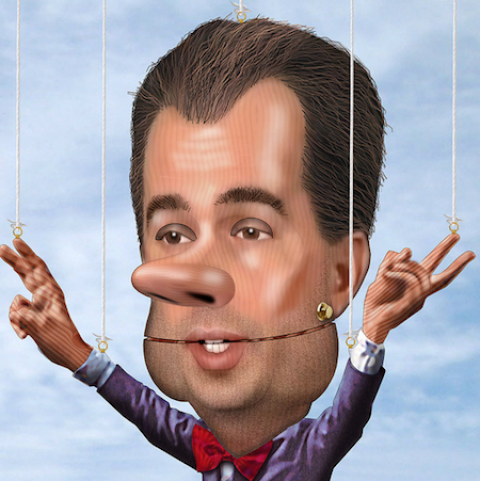Wisconsin prosecutors have alleged that Gov. Scott Walker was part of a wide-ranging “criminal scheme” to coordinate the activities of conservative groups that spent millions to help him and other Republicans fend off recall efforts, according to documents released Thursday.
Walker has not been charged, and his legal jeopardy was unclear. The documents stem from a multi-county investigation blocked last month by a federal judge, a decision currently on appeal.
In a statement, the governor called the allegations of wrongdoing “categorically false.”
The disclosures mark the first time that Walker, who is running for reelection this year and mulling over a 2016 presidential bid, has been singled out for allegedly playing a direct role in what prosecutors have called a “nationwide effort” to mobilize a network of independent groups considered crucial to his recall victory. Included in the documents is an excerpt of an e-mail he sent Republican strategist Karl Rove, describing the outside operation.
Although the case turns on Wisconsin state law, it is being watched closely by politicians and campaign operatives nationwide as they try to navigate state and federal laws that ban coordination between campaigns and well-funded independent groups.
The episode has highlighted how deep-pocketed independent groups often function as de facto extensions of official campaigns, despite such laws.
The proliferation of super PACs and politically active tax-exempt groups that followed the Supreme Court’s Citizens United decision means there is now ample opportunity for such activities. Political strategists regularly hop from a candidate’s campaign to an aligned super PAC. And candidates now commonly upload unedited video footage on their Web sites so that allied outside groups can grab clips to use in putatively independent ads.
The newly released documents “draw back the curtain on what’s happening all across the country,” said campaign finance lawyer Trevor Potter, an advocate for limiting big money in politics. Nonprofit groups “are raising large amounts of money, intervening in the political process without disclosing where the money is coming from — and all of this is being done on a broad, deliberate basis.”
Proving illegal coordination, however, is not easy, and such cases are exceedingly uncommon. Several top election law experts said they could not recall a federal criminal prosecution of alleged illegal coordination in recent history.
“It’s incredibly difficult to prove,” said Brett Kappel, a Washington campaign finance lawyer. “You have to have one party provide evidence that there was actually an agreement to do something, which means either you have to have documentary evidence or one party testifying against another, which is extremely rare.”


Spread the word